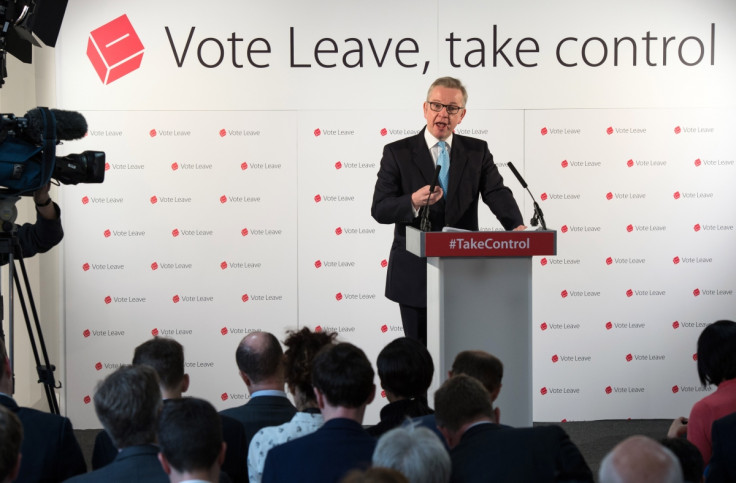EU referendum: The future of our nation has been put at risk by the Conservatives' disarray

Within less than a week of the official opening of the British referendum campaign David Cameron's Cabinet is already in open disarray. If what we have seen and heard so far is anything to go by, ministers may well no longer be on speaking terms by the day of the referendum itself (23rd June).
First we had the Chancellor George Osborne declaring that the pro-Brexit campaigners were "economically illiterate". Then Justice Secretary Michael Gove, a friend of Cameron and Osborne (at least until now), proclaimed today that the pro-EU campaign "treats people like mere children, capable of being frightened into obedience by conjuring up new bogeymen every night".
Before making his speech, Gove was allowed a remarkable amount of airtime on the BBC's prized Today Programme, during the prime slot, just after the 8am news. He ranted away, complaining about the warnings Osborne and the Treasury were issuing about the economic cost of Brexit, as well as the putative threat to "security" from the European Court of Justice.
Now, Gove has done well as justice secretary in undoing some of illiberal measures introduced by his predecessor Chris Grayling. But when it comes to the details of the law, he is not in the same class as former Attorney General Dominic Grieve, who, later in the programme, indicated that Gove was putting about scare stories about the European Court which were patently inaccurate.
However, with regard to Gove's objection to the "economic illiteracy" charge, it has to be said that, by purporting to calculate precise figures on what the economic cost of a Brexit would be by 2030, Osborne is leading with his chin.
Much as I dislike their policy of imposing austerity on the poor in order to finance tax cuts for the better off, I happen to agree with Cameron and Osborne that Brexit would almost certainly involve severe economic costs.
'Messy divorce'
Indeed, irrespective of what might happen by 2030, the costs are becoming apparent here and now, with the very prospect of Brexit delaying investment decisions and prompting concerns about he future of the City of London's predominance in financial services.
The Brexiteers are being extraordinarily naive in supposing that, after a messy divorce from the European Union, they can renegotiate all the advantages of the single market and belonging to one of the world's most powerful trading blocs "just like that".
I also think it would be irresponsible of the Treasury not to publish as best an assessment as it can about the implications of one of the biggest economic gambles a British government would be asked to take if the Leave camp triumphed.
After all, even Gordon Brown's fiercest critics are eternally grateful to him for the huge exercise he commissioned from the Treasury about the question whether we should participate in the Eurozone. It is almost universally agreed that the verdict – not to join – was the right one. Yet leaving the European Union would be a much bigger step than joining the Eurozone.
The uncomfortable truth is that calling this referendum was an entirely unnecessary act, and constituted a potentially catastrophic failure of leadership.
Moreover the economists who work in the Treasury and at the Office for Budget Responsibility are well qualified and objective. The problem is that there have been frequent and embarrassing revisions to even their short-term forecasts in recent months, so that it is easy to deride precise long term forecasts, and not necessarily "economically illiterate".
The referendum campaign is in its early stages, and goodness knows what lies in store. But Cameron and Osborne are reaping what they sowed. The uncomfortable truth is that calling this referendum was an entirely unnecessary act, and constituted a potentially catastrophic failure of leadership.
The future of this nation, and indeed of the EU, has been put at risk entirely for dishonourable, short-term reasons of Conservative Party management.
The Labour Party is now doing the honourable thing of supporting the government's Remain cause, in the interests of the nation.
William Keegan is a journalist, academic, and the senior economics commentator at The Observer. He has published his latest work – Mr Osborne's Economic Experiment - Austerity 1945-51 and 2010 (published by Searching Finance).
© Copyright IBTimes 2025. All rights reserved.






















